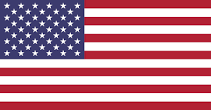Chemycal has been acquired by 3E
Learn MoreChemycal has been acquired by 3E
Learn MoreDiscover how Chemycal PRO helps you boosting your regulatory monitoring:

The Modernization of Cosmetics Regulation Act (MOCRA) was included in the Consolidated Appropriations Act that was signed into law by President Biden at the end of 2022.
MOCRA amends Chapter VI of the Federal Food, Drug, and Cosmetic Act (FD&C Act) and brings the federal government's regulations for cosmetics and personal care products up to date. MOCRA imposes new requirements on "responsible persons" and "facilities" that are involved in cosmetics operations, which are defined as manufacturers, packers, or distributors whose names appear on the label of a product and any establishment (including importers) that manufactures or processes cosmetic products that are distributed in the US, respectively. The FD&C Act defines a "cosmetic" as any product intended to be applied to the human body for cleansing, beautifying, promoting attractiveness, or altering the appearance. This includes products such as perfumes, shampoos, conditioners, deodorants, and body creams and moisturizers.
As part of the cosmetic reform legislation, the FDA has been mandated to create regulations identifying substances that are considered fragrance allergens. These regulations must take into account the requirements for allergen disclosure at the international, state, and local level, including those of the European Union. The FDA is also authorized to establish threshold levels for these substances. Companies will then be required to list any fragrance allergens present in their cosmetic products on the label according to these future regulations. In addition, the FDA must issue regulations establishing standardized testing methods for detecting asbestos in talc-containing cosmetics within one year of the legislation's enactment. The agency must also issue a report on the use of per- and polyfluoralkyl substances (PFAS) in cosmetics within three years, including an assessment of their safety in cosmetics and personal care products. The FDA has also been given the authority to require cosmetic facilities to comply with good manufacturing practices (GMP) through regulation. A proposed rule on GMP is expected to be issued within two years of the legislation's enactment, with the final rule to be issued one year after that.
Under MOCRA, all existing facilities that manufacture or process cosmetics for distribution in the US must register with the FDA within one year of the law's enactment, and new businesses have 60 days to register after beginning operations. MOCRA also requires responsible persons to submit cosmetic product listings to the FDA within one year of the law's enactment. The act includes provisions for the reporting of adverse events and for the FDA to issue mandatory recalls of cosmetics if necessary. It also includes requirements for the labeling of cosmetics, including the inclusion of ingredient lists and certain warnings.
The act also has a preemption clause which specifies that no state or political subdivision of a state may establish requirements that differ from the MCRA, with the exception of (1) prohibiting the use or limiting the amount of an ingredient in a cosmetic product, or (2) continuing in effect a requirement of any state that is in effect at the time of the act's enactment for the reporting to the state of an ingredient in a cosmetic product.
MORE INFO ON www.natlawreview.com
2013 © MyChemicalMonitoring. ALL Rights Reserved. About Us | Terms and Conditions